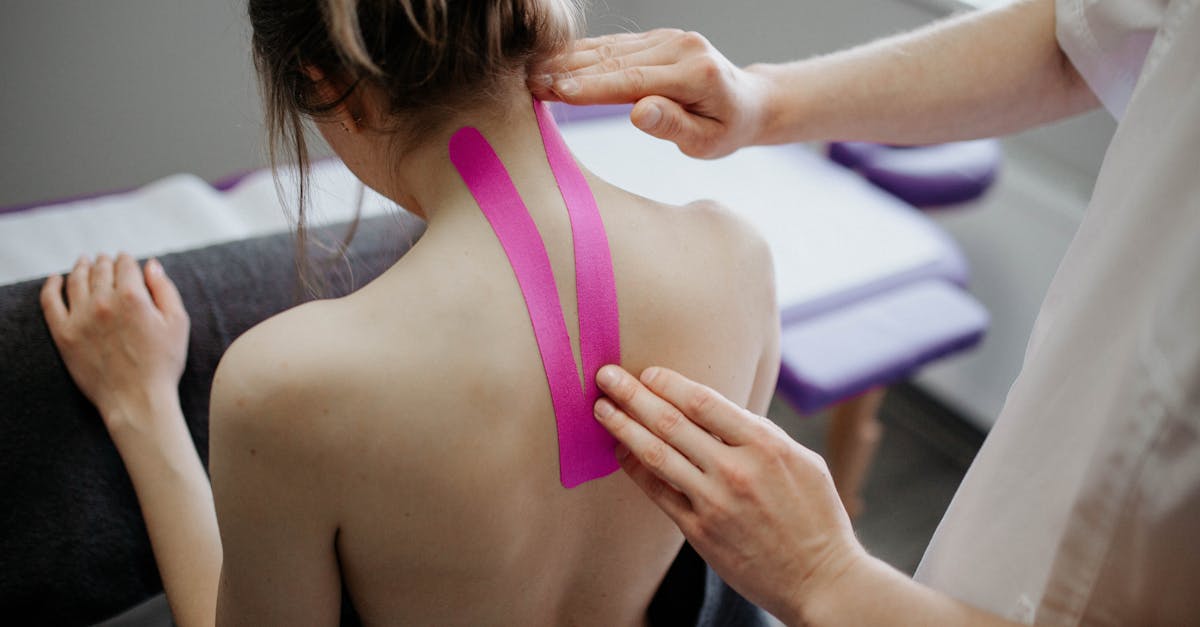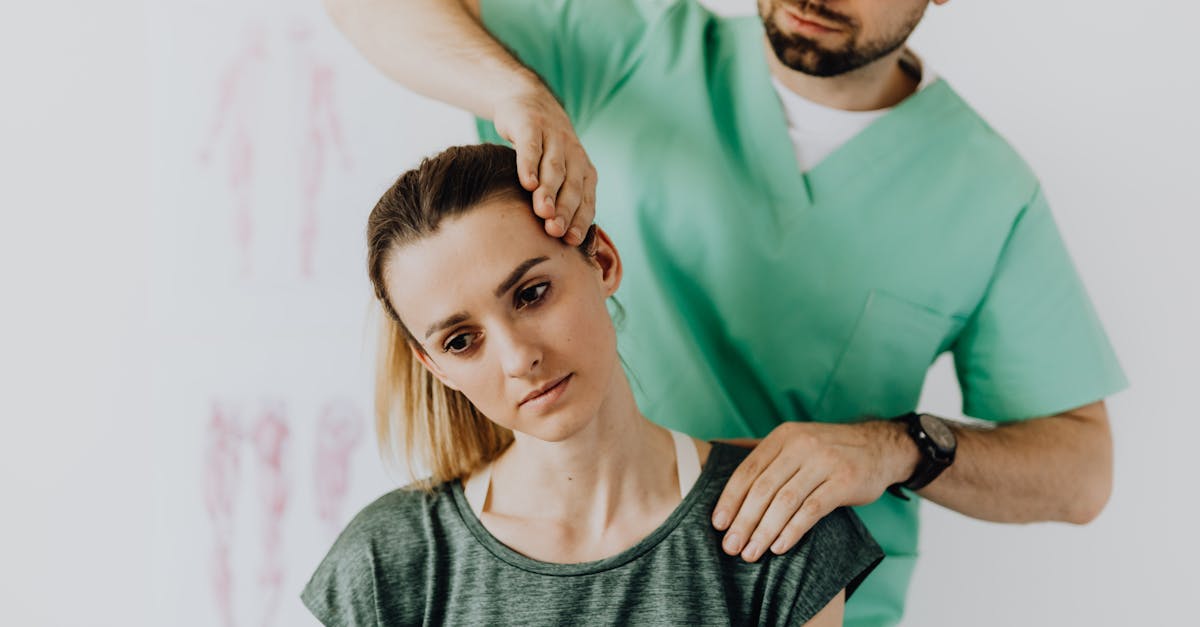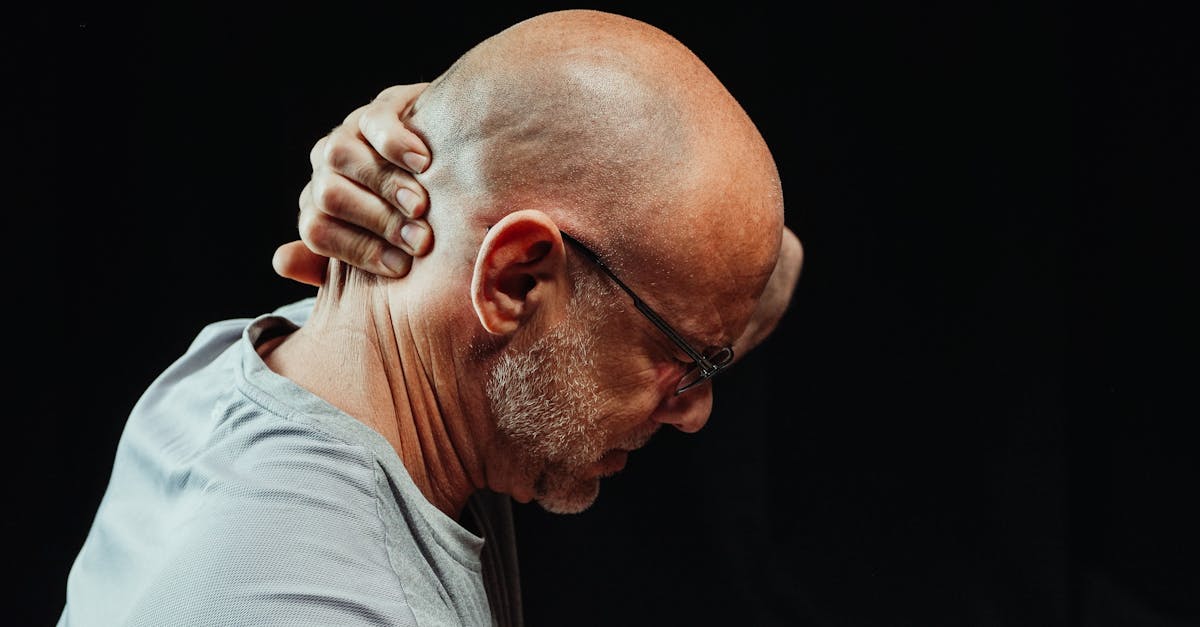|
In Short, waking up with neck pain refers to the discomfort many individuals experience upon rising, often due to factors such as poor sleep posture or inadequate pillow support. Recognizing the causes is essential for finding effective remedies that can enhance your overall well-being. The main benefits of addressing this issue include improved mobility, reduced muscle strain, and better quality of sleep. By implementing simple strategies such as using ergonomic pillows and engaging in gentle stretches, individuals can reclaim their freedom of movement and enjoy a more refreshed start to their days. |
Waking up with neck pain is a common problem affecting many people, often arising from poor sleep posture, inappropriate pillow choices, or underlying medical conditions such as osteoarthritis and previous injuries. The discomfort can impede daily life, making it essential to understand the causes and explore practical remedies. Strategies such as using ergonomic pillows, incorporating gentle stretches, and addressing sleep positions can significantly alleviate the pain. Seeking professional guidance may also be beneficial for persistent cases.

Welcome to Pulse Align: Your Partner in Wellness
At Pulse Align, we provide an innovative, non-invasive method designed to help restore your body’s natural balance and posture. Our approach utilizes gentle, imperceptible pulses that promote the body’s ability to recalibrate its muscle tone and restore optimal function. This natural process can lead to reduced discomfort and improved overall well-being, allowing you to feel your best every day.
Holistic Approach to Well-Being
Our focus at Pulse Align is not on discomfort or underlying conditions but on enhancing your body’s capacity to recalibrate itself. By encouraging symmetry in muscle tone and promoting better posture, our clients often find a pathway to improved comfort and ease in their daily movements. This gentle, alternative method fosters the body’s inherent ability to achieve a balanced state without direct intervention.
Personalized Client Experiences
Each client’s journey with Pulse Align is uniquely personal. Many have shared testimonials about positive changes they have experienced, including reductions in tension in areas such as the neck and back, improved postural balance, and an overall enhancement in wellness. By integrating our services into their routine, clients report feeling lighter, more comfortable, and able to engage more fully in their lives.
Explore Your Wellness Journey with Us
Discover how Pulse Align can enhance your family’s wellness journey by visiting our website. With clinics located in cities such as La Prairie, Mont-Royal, and Terrebonne, we invite you to book a consultation for yourself or your loved ones. Remember, our services complement your ongoing healthcare efforts, supporting your journey towards well-being. Experience the benefits of our safe, non-invasive, and family-friendly approach today!
Medical Disclaimer
Pulse Align’s services are designed to complement, not replace, medical care. Clients should remain under the supervision of their healthcare team for any medical condition. Any reported symptom relief is attributed to the body’s natural ability to restore balance and should not be interpreted as the direct result of interventions from Pulse Align.
Causes and Remedies for Waking Up with Neck Pain
- Causes:
- Poor sleep posture
- Inadequate pillow quality
- Previous neck injuries
- Conditions like osteoarthritis
- Increased muscle tension
- Remedies:
- Use ergonomic pillows
- Practice gentle stretching
- Apply warm compresses
- Maintain proper sleep anatomy
- Consult a healthcare professional if pain persists
- Poor sleep posture
- Inadequate pillow quality
- Previous neck injuries
- Conditions like osteoarthritis
- Increased muscle tension
- Use ergonomic pillows
- Practice gentle stretching
- Apply warm compresses
- Maintain proper sleep anatomy
- Consult a healthcare professional if pain persists
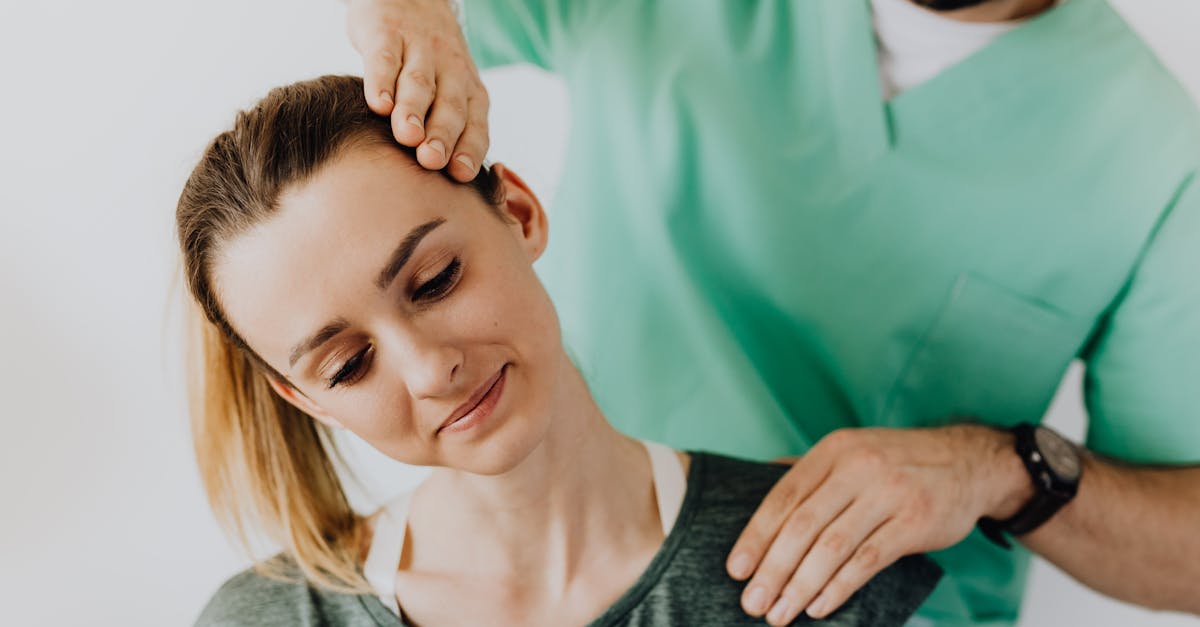
Waking up with neck pain can be a distressing experience, often indicating issues related to sleep posture, pillow support, or underlying medical conditions. Understanding the causes of this discomfort is crucial for implementing effective remedies. This article will explore common factors contributing to neck pain upon waking and provide preventative strategies and solutions to help reclaim comfort and mobility.
Common Causes of Neck Pain
Poor Sleep Posture
One of the primary reasons for waking up with neck pain is poor sleep posture. Sleeping in positions that keep the neck in awkward angles, such as on your stomach or with an over-firm pillow, can lead to muscle strain and stiffness. It is essential to maintain a neutral position while sleeping, allowing the spine’s natural curves to be supported adequately.
Inadequate Pillow Support
The type of pillow used during sleep significantly influences neck comfort. Pillows that are too high or rigid can cause the neck to flex unnaturally during the night. Conversely, pillows that are too low may fail to offer adequate support, leaving the neck vulnerable to strain. Choosing a medium-firm pillow that promotes proper alignment is crucial for alleviating morning discomfort.
Previous Injuries and Medical Conditions
Individuals with a history of neck injuries, such as whiplash or those suffering from chronic conditions like osteoarthritis, may be particularly susceptible to waking up in pain. Injuries can create lasting changes in muscle tension and joint function, while degenerative diseases can lead to stiffness and inflammation. Recognizing these underlying factors can guide individuals towards more effective treatment options.
Preventative Strategies
Optimizing Sleep Environment
Creating a sleep environment that promotes comfort is essential for preventing neck pain. This includes choosing a mattress that provides adequate support without being too firm or soft. Additionally, adjusting bedroom temperature and limiting screen time before bed can help enhance the quality of sleep.
Practicing Good Sleep Hygiene
Establishing healthy sleep hygiene practices can also mitigate neck pain. Maintaining a regular sleep schedule, avoiding stimulating substances like caffeine before bed, and engaging in calming activities can set the stage for restorative sleep. Furthermore, implementing gentle stretching or relaxation techniques before sleep can help prepare the neck for a restful night.
Incorporating Gentle Exercises
To combat neck pain, incorporating gentle exercises and stretches into your routine can build strength and flexibility in the neck muscles. Simple neck rolls, side stretches, and chin tucks can be effective in alleviating tension and restoring mobility. Doing these stretches in the morning or before bedtime can yield noticeable benefits for overall neck health.
When to Seek Professional Assistance
Consulting a Healthcare Professional
If neck pain persists despite addressing these common factors, it is advisable to consult a healthcare professional. Persistent discomfort may indicate underlying issues requiring special attention or treatment. Seeking guidance from a physical therapist or pain management specialist can provide tailored interventions designed to address individual needs.
Employing Holistic Approaches
Embracing a holistic approach to neck health can support neuromuscular well-being. This may involve practices such as maintaining proper posture during the day, managing stress levels, and exploring alternative therapies, such as manual therapy or acupuncture, to enhance recovery. By integrating these methods into your daily life, you can foster a healthier and more balanced lifestyle.
| Causes | Effective Remedies |
|---|---|
| Poor Sleep Posture | Adjust your sleeping position to maintain neck alignment. |
| Inadequate Pillow Support | Use a pillow that supports the natural curve of the neck. |
| Previous Injuries | Incorporate gentle stretching and exercises into your routine. |
| Muscle Strain | Utilize warm compresses to help relax tight muscles. |
| Osteoarthritis | Focus on activities promoting mobility and overall balance. |
| Stress and Tension | Practice relaxation techniques like yoga or deep breathing. |
| Improper Ergonomics | Ensure proper workspace setup to support good posture. |
| Dehydration | Maintain hydration to support overall muscle and joint health. |
| Lack of Sleep | Establish a consistent sleep routine to enhance recovery. |
| Age-Related Changes | Engage in regular physical activity to cultivate balance. |

Client Testimonials: Embracing Wellness Through Natural Recovery
Many clients have shared their transformative experiences at Pulse Align, specifically regarding waking up with neck pain. They have found that our unique approach, which emphasizes the body’s innate ability to recalibrate and restore balance, has significantly enhanced their overall well-being. For instance, a resident from La Prairie expressed, “After just a few sessions, I realized that the tension I felt in my neck was diminishing. I now wake up feeling refreshed and free to move!” This aligns perfectly with our commitment to supporting clients’ natural healing processes.
In Mont-Royal, clients have similarly reported feeling notable improvements in their body function. “I struggled for years with neck pain that disrupted my mornings. The gentle, non-invasive methods at Pulse Align allowed my body to find its equilibrium. I’m now able to enjoy my days without discomfort,” shared a satisfied client. We believe that embracing holistic recovery helps foster lasting change and comfort in every aspect of life.
Residents of Terrebonne have also praised our services, with one individual stating, “The supportive atmosphere at Pulse Align transformed my understanding of wellness. The techniques used here have empowered me to take control of my pain naturally. It’s liberating!” These testimonies highlight how our approach prioritizes the individual’s journey toward holistic health, demonstrating the effectiveness of non-invasive care.
From Les Escoumins to Saint-Jérôme, individuals have recognized the value of our method. A client from Châteauguay remarked, “Pulse Align’s focus on my body’s natural ability to heal created a sense of harmony I never thought I could achieve. It’s astounding to wake up without the burden of neck pain after years of suffering.” Such feedback strongly reinforces our mission to support clients and their families as they navigate their wellness journeys.
For anyone residing in Chicoutimi or Deux-Montagnes, we invite you to explore the benefits our clients have experienced firsthand. “Joining Pulse Align has been a game changer for me. It is evident that the practitioners are genuinely caring and knowledgeable,” said a local client, emphasizing the personal approach that sets us apart.
If you’re seeking to begin your wellness journey, consider joining us at one of our locations near you. At Pulse Align, we collaborate with healthcare teams to complement ongoing treatments, ensuring you receive the best care possible. To learn more about our clinics, please visit Our Clinics and discover how we can support your path to improved health and vitality.
Waking up with neck pain is an all too common experience that many individuals endure. The discomfort often manifests as stiffness, soreness, or limited mobility, setting a negative tone for the day ahead. Understanding the underlying causes of this condition is crucial for finding effective remedies and reclaiming your zest for life. Factors contributing to morning neck pain typically include poor sleep posture, inadequate pillow support, and pre-existing medical conditions. By recognizing these triggers, individuals can implement tailored strategies to alleviate discomfort and enhance their overall well-being.
A key element in understanding neck pain is the impact of sleep posture. When individuals sleep in awkward positions, especially with their necks maintained in an unnatural alignment for an extended period, muscle strain and tension inevitably occur. This strain can arise from sleeping on one’s stomach, which forces the neck into a twisted position, or even from sleeping on one’s side with a pillow that lacks proper support. An ergonomic setup during sleep is essential to maintain the natural curvature of the spine and optimize comfort.
The choice of pillow significantly influences neck health as well. A pillow that is too high or rigid can hinder the neck’s natural alignment, while one that is too flat may fail to provide adequate support. Ideal pillows are those that accommodate individual preferences and sleeping positions, creating an anatomy-friendly environment for the neck. Adjusting pillow height or selecting a memory foam option can prove transformative for neck pain sufferers.
Beyond sleeping habits, underlying medical conditions can exacerbate neck pain upon waking. Chronic conditions like osteoarthritis or degenerative disc diseases can lead to inflammation and stiffness in the cervical spine, compounding discomfort experienced during the night. Previous injuries, such as whiplash from car accidents, may also create lingering issues, making personalized treatment essential for long-term relief.
In addition to these factors, managing daily stress plays a significant role in neck pain. The tension that builds throughout the day can translate into tightened muscles around the neck and shoulders, creating a cyclical issue where stress increases pain, leading to more stress. Implementing daily relaxation techniques, such as yoga or meditation, can encourage muscle relaxation and improve overall neck health.
When it comes to addressing waking neck pain, various strategies can be employed. Gentle stretching and neck exercises serve to alleviate tension and enhance overall mobility. Including these practices in your daily routines can foster improved flexibility and reduce the chances of waking up stiff. Moreover, heat and cold therapy might provide immediate relief by relaxing tight muscles or combating inflammation, each yielding positive outcomes tailored to the individual’s symptoms.
For those whose neck pain persists despite these interventions, seeking the expertise of a healthcare professional is advisable. Dr. Sylvain Desforges, an expert in osteopathy, naturopathy, and manual medicine, exemplifies such expertise. As the founding president of TAGMED clinics and the ACMA association, he dedicates his career to chronic pain management by integrating advanced technologies such as spinal decompression and laser therapy into treatment plans. With a mission to optimize patients’ health and well-being, Dr. Desforges offers evidence-based care that effectively reduces discomfort and enhances quality of life.
By understanding the causes of waking neck pain and investigating appropriate remedies, individuals can take proactive steps to mitigate discomfort and reclaim the joy of comfortable mornings. Adopting proper sleep hygiene, utilizing supportive pillows, and managing stress levels can all contribute to a significant reduction in neck pain, as well as an enhanced overall sense of well-being.
Neurovertebral Decompression Technology: A Pathway to Pain Relief
Mechanism of Action
The neurovertebral decompression technology offered by TAGMED operates using controlled, progressive traction force applied to the spine. This method effectively creates more space between the vertebrae, which reduces pressure on both the intervertebral discs and the nerve roots. By alleviating this pressure, the decompression process encourages improved fluid circulation in the targeted area, which is essential for reducing inflammation and relieving pain. As the decompression occurs, the negative pressure created within the discs allows for the absorption of nutrients, promoting the healing and regeneration of the disc tissues. This mechanism plays a crucial role in managing conditions such as herniated discs, bulging discs, and spinal or foraminal stenosis.
Specific Advantages
This non-invasive approach has proven to effectively relieve chronic pain and symptoms associated with various spinal conditions. By decreasing pressure on the nerve structures and optimizing fluid circulation around the discs, neurovertebral decompression encourages quicker recovery. Patients often experience significant improvements in mobility and a noticeable reduction in discomfort, enhancing their overall quality of life. This technology is especially beneficial for individuals who have found limited relief through traditional pain management methods, allowing them to reclaim their daily activities without the burden of persistent pain.
Comparison with Other Treatments
When compared to traditional treatment methods for managing neck pain, such as painkillers, corticosteroid injections, surgeries, or conventional physiotherapy, TAGMED’s neurovertebral decompression offers distinct advantages. Unlike invasive surgical treatments, this method carries minimal risks, effectively avoiding the side effects associated with long-term medication use. Patients often report quicker recovery times while achieving substantial pain relief, making neurovertebral decompression a compelling alternative to other therapeutic options. This innovative approach aligns with the supportive care that patients seek, as it complements their healing journey without invasive interventions.
Case Studies and Testimonials
Numerous patients have successfully utilized TAGMED’s neurovertebral decompression technology to manage chronic pain symptoms. For instance, one patient expressed, “After enduring years of debilitating neck pain and trying multiple treatments, I found incredible relief with neurovertebral decompression. My pain diminished significantly, and I was able to return to my daily activities much quicker than I anticipated.” Another patient shared, “I was hesitant about less invasive treatments, but after just a few sessions, the reduction in my morning stiffness and pain was remarkable. It felt like a weight lifted off my shoulders.” These testimonials highlight the transformative potential of this innovative approach, providing individuals the opportunity for a healthier and more active life without the dependency on pharmaceutical interventions.
Waking up with neck pain is a prevalent issue that can significantly disrupt daily life and overall well-being. Understanding the various causes of this discomfort is crucial for identifying effective remedies. Poor sleep posture often leads to muscle strain and stiffness, while inadequate or poorly designed pillows can exacerbate the situation, maintaining the neck in unnatural positions during the night.
Additionally, underlying medical conditions such as osteoarthritis or previous injuries can contribute to chronic neck pain, making it essential for individuals to assess their personal health history. Stress and tension in the neck and shoulder regions can further worsen the problem, stemming from a combination of emotional factors and prolonged periods of poor posture during daily activities.
Fortunately, several practical strategies can alleviate neck pain upon waking. First and foremost, adjusting your sleeping position and opting for a supportive, ergonomic pillow can promote better spinal alignment. Gentle stretches and neck exercises can also improve flexibility and reduce muscle tightness. Incorporating heat therapy, such as warm compresses, can facilitate relaxation and help soothe sore muscles.
It is equally important to consult with healthcare professionals if neck pain persists despite implementing these measures. A thorough assessment can uncover underlying issues requiring targeted interventions, such as physical therapy or specialized treatments. Embracing a holistic approach to health—considering both physical and emotional aspects—will empower individuals to manage their neck pain more effectively.
By recognizing and addressing the causes of neck pain, individuals can reclaim their mornings and ultimately enjoy a higher quality of life free from the burdens that discomfort can impose.
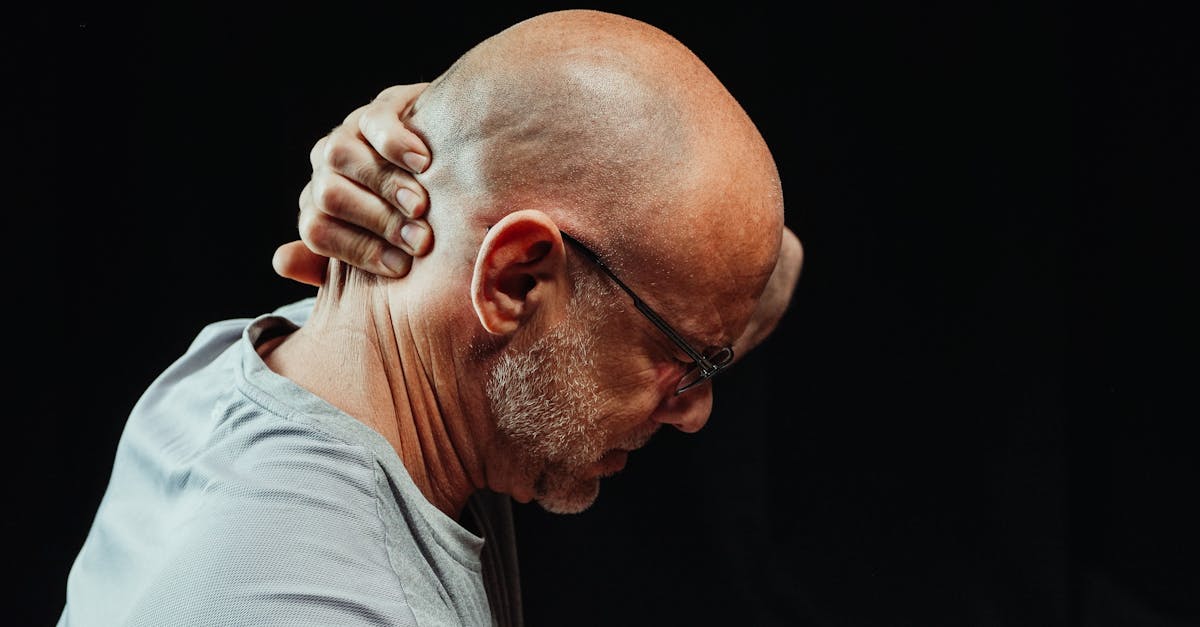
Do you suffer from discomfort that responds little or not at all to conservative treatments?
Waking up with discomfort can be a frustrating experience, often hindering the start of your day. At Pulse Align, we offer a non-invasive, innovative method designed to help restore the body’s natural balance and posture through gentle, imperceptible pulses. This approach fosters a gentle recalibration of muscle tone and can assist in alleviating tension, leading to enhanced comfort and improved overall well-being without the use of invasive procedures.
Pulse Align focuses on promoting the body’s ability to recalibrate itself naturally. By enhancing muscle tone symmetry and improving posture, clients may experience wonderful improvements in their daily comfort. Our method supports the body in its journey toward balance, allowing for a smoother, more enjoyable experience in everyday activities and minimizing discomforts that can interfere with a fulfilling life.
At Pulse Align, we pride ourselves on our personalized approach to wellness. Many clients have shared uplifting testimonials describing their remarkable journeys with us. They often speak of notable improvements in neck and back tension, enhancing their overall sense of well-being. We invite you and your family to explore how our services can be an integral part of your wellness journey, aligning seamlessly with your lifestyle and enhancing daily comfort.
We encourage you to visit the Pulse Align website to learn more about our innovative services and find nearby locations in cities like La Prairie, Mont-Royal, and Terrebonne, among others. Book a consultation for yourself or your family with the confidence that Pulse Align complements, but does not replace, any ongoing healthcare services. Our gentle, family-friendly approach is suitable for all ages, including children and pregnant women. Discover how we can support your journey towards improved muscle tone and posture by visiting Pulse Align.
Frequently Asked Questions
Neck Pain
Do ergonomic pillows help?
Yes, a suitable pillow supports the neck’s natural curve, reducing tension and neck pain.
Is osteopathy effective?
Many find relief through osteopathy, which aims to restore musculoskeletal balance.
Can I do stretching exercises at work?
Yes, taking breaks, gently rotating your neck and shoulders can reduce accumulated tension.
When should I see a doctor for neck pain?
If the pain lasts more than a few weeks, comes with dizziness, arm tingling, or severe headaches, seek medical help.
Does being overweight play a role?
Excess weight may increase spinal load, but its impact on the cervical area is less direct than on the lumbar region.
Can a chiropractor help?
Yes, a trained chiropractor may perform adjustments to reduce neck pain, but ensure their qualifications.
Should I avoid thick pillows?
Yes, a pillow that’s too thick or too thin alters neck alignment, potentially causing or worsening pain.
Can I strengthen my neck with resistance bands?
Yes, specific exercises with bands help strengthen neck muscles, but proceed cautiously.
Is swimming helpful?
Yes, swimming improves posture, strengthens back muscles, and can relieve cervical tension.
What is cervical pain?
It’s pain localized in the neck area, which can radiate to the head, shoulders, or upper back.
Sophie Gambert understands that neck pain is far more than a physical ache—it’s a roadblock to living the life you love. As a Neck Pain Awareness Advocate at Pulse Align, she is committed to shedding light on the underlying causes, sharing practical relief strategies, and offering genuine support to readers seeking to reclaim their freedom of movement. With a warm, empathetic voice and a keen eye for the latest in pain management research, Sophie leads conversations that uplift, educate, and inspire. She believes that every individual deserves to feel heard, understood, and guided toward healing, one step at a time.
Medical Disclaimer
The information and advice provided on this site do not replace the advice, diagnosis, or treatment of a healthcare professional. Please note that the author of this article is neither a doctor nor a specialist in a medical specialty as defined by the Collège des médecins du Québec. Manual medicine, functional medicine, and sports medicine as described on this site exclude any medical treatment or diagnosis made by a doctor or medical specialist. Always consult your doctor for any medical questions. For more details, please read our complete Legal Notice.

